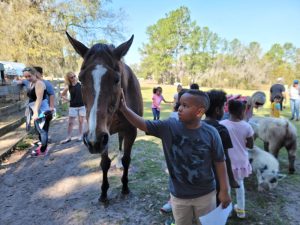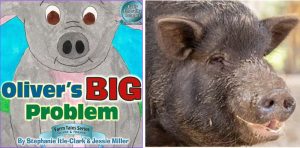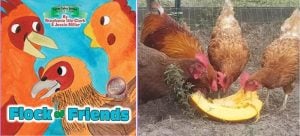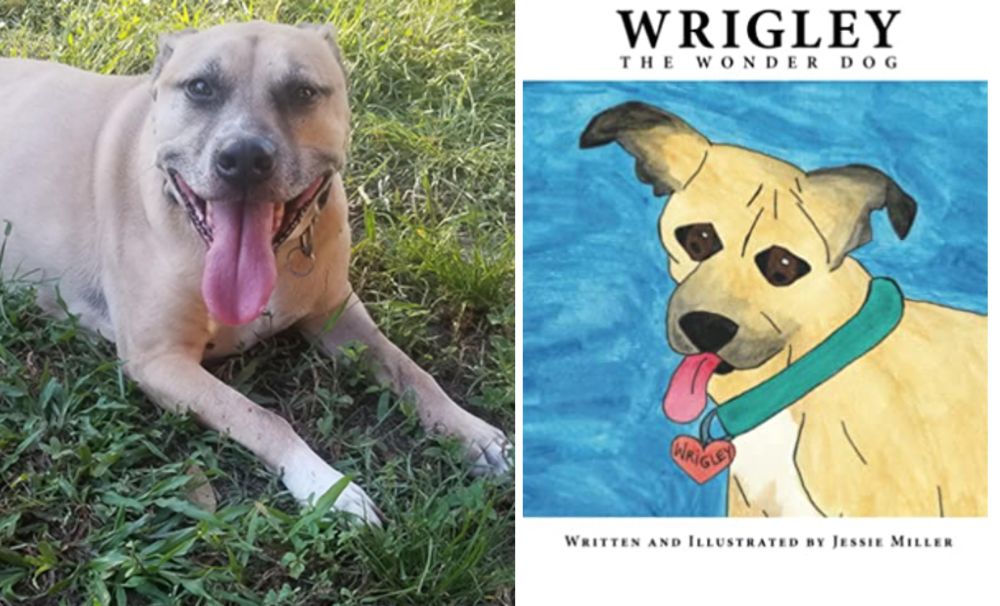Editorial Note: This is part of a series highlighting recipients of Lady Freethinker’s new Urgent Need Fund grant program, created to help nonprofits working to rescue or care for animals or raise awareness to improve the way animals are treated. Learn more about the program and how to apply here.
A dream that grew into a Florida-based animal sanctuary serving more than 30 rescued animals and teaching thousands of children and their families about kindness and humane education started with two dogs who had unfortunately been struck by cars and one emaciated, stray cat.
EPIC Outreach Founder Jessie Miller was 10 years old when she witnessed a dead German shepherd who had been hit by a car lying in the road. In that moment, she felt deep down that there was a greater calling for her life, related to saving, protecting, and making a difference for all beings.
Volunteering at animal shelters led to a job as an animal control officer, and then to other animal welfare jobs through which she picked up skills in rescue, networking, and education outreach.
As an animal control officer, she saw firsthand how educating people about proper animal care generally led to more humane treatment of those animals. When people knew better, they did better.
Those early experiences planted a seed to someday have a humane education outreach of her own – dreams she would share with a scrappy tan pit bull she rescued and named Wrigley, and dreams that manifested in 2019.
EPIC Outreach, a registered nonprofit in Jacksonville, Florida, now cares for more than 30 rescued animals — including Pumpkin the guinea pig, Oliver the pig, and a flock of chickens named Pebbles, Bingo, Ginger, and Roo.
The nonprofit reaches about a thousand children and their families through its humane education curriculum each year, with programs including lessons on the farm, visits to classrooms, after school programs, the Girl Scouts, and summer camps.
Children’s books are the heart of EPIC Outreach, Miller said. While helping youth build literacy skills, each self-published book also aims to teach empathy, kindness, and connection to animals by featuring the story of one of the farm’s rescued animals.
“I love sharing the stories with children and to show them how animals should be treated through books. It plants seeds, and that’s where I think the change happens,” Miller told Lady Freethinker. “I don’t know if I could ever quantify the impact we have through children’s books, but I know I am planting seeds because I hear from families about how their kids can’t stop talking about the animals they read about and visited.”
Lady Freethinker awarded EPIC Outreach $4,700 through the Urgent Need Fund grant program to cover sanctuary expenses for animals for three months and to cover the costs of printing 400 children’s books used in the humane education program.
These awards would not be possible without the generous support of our readers and sponsors; thank you so much for your continued support!
The following Q and A combines EPIC Outreach’s grant application and an interview with Miller. Answers have been edited for length. To learn more about EPIC Outreach, visit their website here.
A Q & A With Jessie Miller, Founder of EPIC Outreach

(Courtesy of EPIC Outreach)
When did you first feel a connection to animals – and how did that turn into EPIC Outreach?
As many animal lovers would probably say, I have always had a compassion within me for animals. I’ve always volunteered with animal organizations, then I took jobs as a sea turtle educator and and animal control officer. I saw a disconnect with people not knowing how to treat animals better. When I helped educate them about proper care, then they did better. So there was always a dream for me of having an organization with an educational component. In 2019, my husband and I started the sanctuary on a 7-acre farm. We now do humane education at the farm, and I still go into schools.
Had you worked with farmed animals before, or did you take a leap of faith?
It was a leap of faith! I didn’t grow up on a farm. I didn’t have experience with pigs or horses. But I had noticed that farmed animals didn’t get as much attention from rescues. So when we started the farm sanctuary, I learned as I went. Animals are all pretty much the same; they need food, water, shelter, and love. You just need to figure out what that means for each species.
But passion is one thing, and having a support network is another. I was not afraid to ask questions and for help, and I surrounded myself with people who knew more than me.
How will you spend the grant funds?
This grant will allow for not only the care of the rescued animals over three months, but for the purchase of children’s books to share with children and adults, further developing a foundation to continue growing and expanding curriculum into schools and at the farm sanctuary. These grant monies will give us the foundation to get more books into more hands, sharing information to inspire change.

Oliver’s book and Oliver (Courtesy of EPIC Outreach)
Why do you believe humane education is such an important tool to transform hearts and minds, and why do you focus on children’s books?
In a society facing global issues like interpersonal violence, pollution, institutionalized animal cruelty, and poverty, people need to be given instruction on more than just the basics. They need to be taught how they can help make this world a better place for people, animals, and the environment.
The self-published children’s books are written and illustrated after the animals rescued at the education farm sanctuary. The animals tell their stories, sharing information that inspires kindness and compassion. Children love to receive the books, especially after meeting one of the rescued animals who has a book written after him.
The long-term outcome is creating better learners who are more tolerant and compassionate citizens of the greater community, cultivating empathy for animals and, as a result, decreasing animal abuse in our society, motivating youth and adults to strive for a sustainable society.
Tell us about the children’s books that will be printed – and the animals behind them– that the LFT grant supports.
Wrigley the Wonder Dog is about Wrigley, who was hit by a car, and his journey to love again. I rescued Wrigley as an animal control officer in 2008. He just passed away this August, at age 15. Wrigley was an amazing dog. He got along with cats, other dogs, chickens, horses and even our guinea pig. He was a great therapy dog and an ambassador in teaching kids about kindness and adoption.
Oliver’s Big Problem is about our first pig we encountered, Oliver. He came with the farm. He was likely someone’s pet who was abandoned. Piglets are cute, like puppies or kittens, but then they grow big and not all people are prepared to take care of them in that phase, so there’s a lot of abandonment. Oliver is the reason we have 19 pigs now. I learned a lot in caring for him, including how intelligent pigs are. They’re also easier to train than dogs and probably cleaner! A year ago, I found out in a roundabout way that pigs found on the streets were sold to auction or taken to a shelter and euthanized. I stopped that, and we are now the resource. They come here.
Flock of Friends is about our chickens and how they spend their time on the farm. It plants the seed that chickens have personality. They are individuals, and they get to live their lives on this beautiful planet.

The farm flock (Courtesy of EPIC Outreach)
How do you ensure that welfare remains a top priority when youth and their families are interacting with your animals?
There is a fine line between being an educational farm and a petting zoo. We definitely don’t want to be deemed a petting zoo. We have an open concept sanctuary where all the animals commingle, and people on tours are allowed to go into that area. But animals always have the ability to move away. We allow people to engage with the animals to the level that the animals want to engage. We never force interactions. We want people to have a positive encounter, and we want the animals to have a positive encounter.
Another difference between us and a petting zoo is we educate. We talk about why the animals are there and why there are certain things at the farm, like a mud pit for the pigs. Most people don’t know that pigs don’t sweat, and that’s why they’ll go into the mud (to help regulate their body temperatures). It’s a chance to clear up misconceptions.
What helps you through hard times?
Running a sanctuary is morning, noon and night. It’s a passion. But I have my good days and bad days. I have days I feel like I’m going to crumble and cry. And then there are days like today, when I’m out with the animals and giving belly rubs, and it fills my soul. On bad days, or when you’re running on empty, you have to find a way to fill your tank.
What would you like LFT supporters to know about what receiving the grant means for you and the animals?
I was blown away! I was sitting at my desk and trying to figure out what we were going to do for fundraising, and I opened the email from Lady Freethinker and literally got goosebumps. Your organization does so many incredible things, and to be aligned with you is amazing! The amount of support that grant is providing is huge. To have this support is life-changing.







